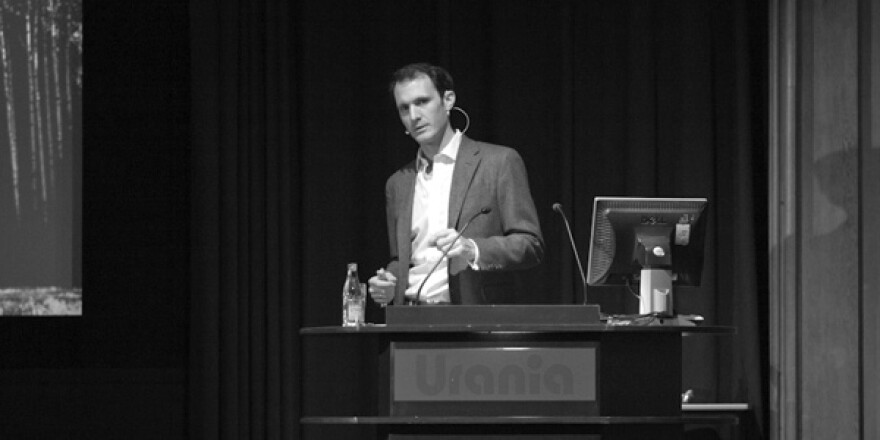Philosopher Stephen Cave argues that since the beginning of civilization humans have always tried to defy or defeat death.Part of that is our “sophisticated sense of self”—when we peer into the future “what we see is mortality.”So, we tell ourselves stories to keep us going, he said.Cave is author of the book “Immortality," which explains four stories on life and death that continue to be reinvented by societies. He will speak Wednesday as part of this week’sIdeaFestival.I spoke to him recently about his work:Philosopher Stephen Cave discusses his book "Immortality."Those recurring stories Cave writes about are:
- Fountain of Youth: “Every culture in human history has some legend of a fountain of youth or an elixir of life or something that can keep us going forever. These stories can be found in ancient China, ancient Babylon, in Europe, in stories of the alchemists. And of course we still tell ourselves these stories, only we’ve updated them into the language of science and technology. So we hope that gene replacement and stem cells and nanotechnology and all these things are going to help us defeat death, defeat aging, defeat disease.”
- Resurrection: “Some people believe that an omnipotent God will resurrect them to live again and other people believe omnipotent science will do it for them (cryonics for example). But the basic story is the same.”
- Soul: “It’s a very popular view. It’s a view that comes naturally to us because we find it easy to imagine surviving our bodies. We find it easy to imagine floating away and looking down on our own funeral. And we think because we can imagine it it’s plausible.”
- Legacy: “This is a story we see recurring again and again throughout our culture, the idea that you can live on through your great deeds (think of famous artwork, something you’ve done that has left a lasting impression, or having kids) and you can argue that in this digital age it’s easier than ever to achieve. You don’t need to be a great hero or a king, some famous warrior. All you need is an internet connect and an amusing cat.”
These stories are a response to the fear of death, Cave said. And although it’s natural to fear death, it’s not rational, he said. Cave tells a fifth story about the wisdom of accepting mortality.“Yes, mortality is real. Death is real. But we don’t need to be afraid of it. We won’t experience death. It’s like a horizon. We’re not alive to experience death. It’s not an event that we experience. It is our fading out. And so it doesn’t make any sense to be afraid of it. But the fact that we will die actually is what gives meaning and value to the time that we have.”We'll have more interviews with IdeaFestival speakers throughout the week. Find them online here,and tune in to 89.3 at 1 p.m. Tuesday, Wednesday and Thursday to hear the interviews.


